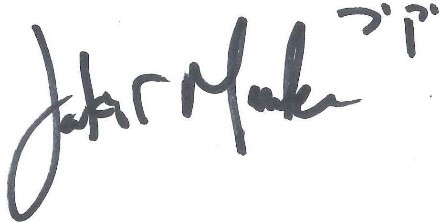The Jews gave to the world this idea of time as a narrative of hope, which meant that what is lost can be regained, what is destroyed can be rebuilt, and what disappears may one day return. – Rabbi Jonathan Sacks, “On Tisha B’Av For Our Time”
The future is dark, with a darkness as much of the womb as the grave. – Rebecca Solnit, “Hope In the Dark”
Friends,
This past weekend we observed Tisha B’Av, the saddest day of the Hebrew calendar, when we fast and mourn the destruction of the Temples in Jerusalem along with other disasters that fell on this day over time. Many in our movement lament not only our loss as a people on this day, but also our loss as a planet: grieving climate change, environmental racism and injustice, massive species extinction, and countless other traumas we have wrought upon ourselves, people and planet.
So it is with tearful gratitude and earnest hope that we watched a minor miracle unfold over the weekend – on Tisha B’Av – when the United States Senate passed the largest investment ($370 Billion) towards combating climate change in our nation’s history! The Inflation Reduction Act is not yet law, and like any negotiated compromise it contains strengths and weaknesses. But I want to encourage everyone: please, take some time this week to pause, embrace, and reflect upon this historic moment. After decades of education and activism, marching and workshops, advocacy and organizing, a new era has arrived, bringing unprecedented structural investment in climate solutions. Surely we still have a very long way to go, but hope is very much alive.
Hope has been on my mind a lot lately, given the roller coaster of news and current events, ongoing pandemic challenges, and our focus on both culture change and systemic change. This work demands both hope and action, and thanks to a recommendation from a colleague, I recently read – and strongly recommend – Rebecca Solnit’s beautifully inspiring short book of essays, Hope in the Dark: The Untold History of People Power. In it she writes:
“Hope is not a lottery ticket you can sit on the sofa and clutch, feeling lucky. It is an axe you break down doors with in an emergency. Hope should shove you out the door, because it will take everything you have to steer the future away from endless war, from the annihilation of the earth’s treasures and the grinding down of the poor and marginal… To hope is to give yourself to the future – and that commitment to the future is what makes the present inhabitable.”
Where would the Jewish people be without the obstinate hope and commitment of Rabbi Yochanan Ben Zakkai and the other founders of Rabbinic Judaism, who lead us through the storm of destruction and built a new form of Jewish practice that has stood the test of time for thousands of years? And where would we be as Americans without the focused, disciplined activism and advocacy of so many climate leaders who have lead us to this victory and others?
“Inside the word ‘emergency,’” Solnit writes, “is ‘emerge’; from an emergency new things come forth. The old certainties are crumbling fast, but danger and possibility are sisters.”
As this historic legislation moves towards the President’s desk, we can only begin to imagine what progress may unfold in the days, weeks, months, and years ahead. We must be realistic and understand that yes, there will most likely be many pitfalls, frustrations, and disappointments ahead. But if we savor this moment, if we soak up the hope and joy and undeniable truth of this moment – that progress IS possible – then we can gird ourselves for the immense efforts moving forward – where all of us are needed – to catalyze societal transformation in the years ahead. This milestone was nowhere near inevitable, and neither are the outcomes of this bold investment. So reinforced with newfound hope, let us work together to turn the tide –deeply, permanently –for the good. For as Solnit teaches us,
“Hope just means another world might be possible, not promise, not guaranteed. Hope calls for action; action is impossible without hope.”
Many thanks,

Jakir Manela
Chief Executive Officer
Our mission at Hazon-Pearlstone is to lead a transformative movement deeply weaving sustainability into the fabric of Jewish life, in order to create a healthier, more sustainable, and more equitable world for all. We connect people to the earth and to each other, catalyzing culture change and systemic change through Immersive Retreats, Jewish Environmental Education, and Climate Action.




Comments are closed.